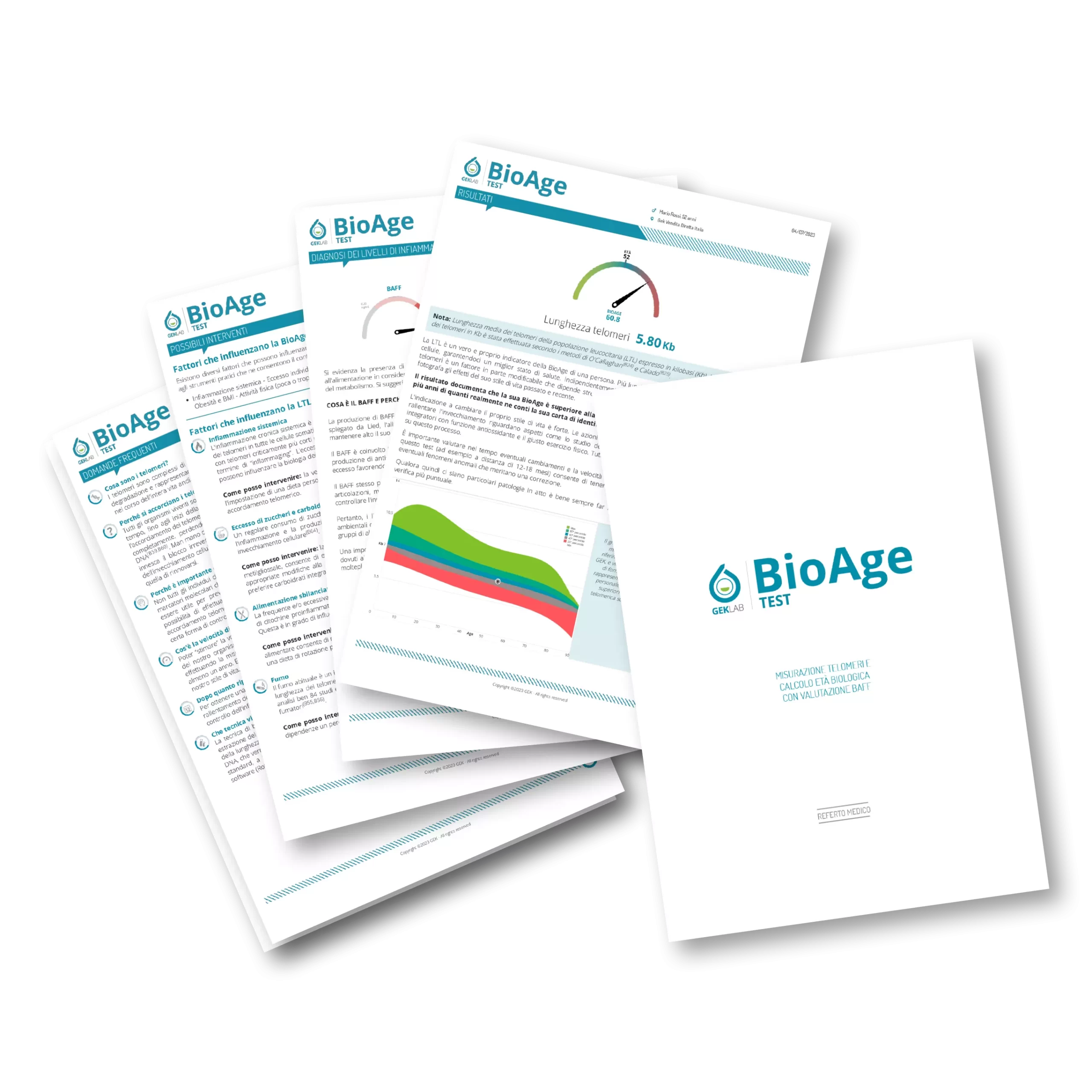
Studies by many scientists, including Nobel laureate Elizabeth Blackburn, have highlighted the importance of telomeres in inflammation processes and aging.
Telomeres are similar to “caps” that protect the ends of each chromosome. They are small pieces of DNA that ensure the integrity of genetic information, and their length decreases over time and with oxidation.
Environmental factors such as diet, exposure to cigarette smoke, environmental pollution, lifestyle, sedentary behavior, and stress can significantly impact the average length of telomeres and, consequently, the aging process of an individual.
Studies have shown that in smokers, aging occurs twice as fast as in non-smokers.
The shorter the telomeres, the higher the BioAge, meaning the cellular aging condition of a person.
Knowing the length of telomeres is the first step toward guiding the individual toward personalized lifestyle changes and suggesting targeted supplements that help slow down the natural aging processes.
Shortening is a physiological and entirely natural process, but its acceleration can be a sign of premature aging as well as a potential onset of diseases..
The good news is that it is possible to act in the opposite direction by changing one’s lifestyle, slowing down the rate of telomere shortening. A 45-year-old person could have their BioAge estimated at 32 years, indicating a healthy lifestyle that preserves telomere length.
Unfortunately, more often the reverse happens, with negative environmental factors and unhealthy lifestyles leading to a 45-year-old person having a BioAge of 55 years.
This means that factors like inflammation, vitamin deficiencies, nutritional imbalances, lack of physical activity, lack of sleep, and excessive work stress are accelerating the aging process, making the person biologically “older” and more susceptible to a decline in health.
In this case, it’s important to identify what the potential factors may be. Detecting them means gaining years of healthy life, so it’s always a good reason to make improvements.
Sometimes, it is useful to contextualize the measurement of the average telomere length by also measuring innovative markers related to food and sugar-induced inflammation, such as BAFF and PAF or Glycated Albumin and Methylglyoxal.
An alteration in these markers could already indicate nutritional imbalances, which can be addressed by making simple changes to daily nutrition.
Furthermore, a proper integrative therapy, using supplements such as turmeric, inositol, black currant oil, and perilla oil, has proven to be highly effective in combating various forms of inflammation.
Knowing and correctly interpreting the measurement of telomeres allows for the estimation of a person’s biological age and represents the first step in guiding the individual toward personalized lifestyle changes and suggesting targeted supplements to help slow down the natural aging processes.
Edited by The scientific editorial team GE Lab





